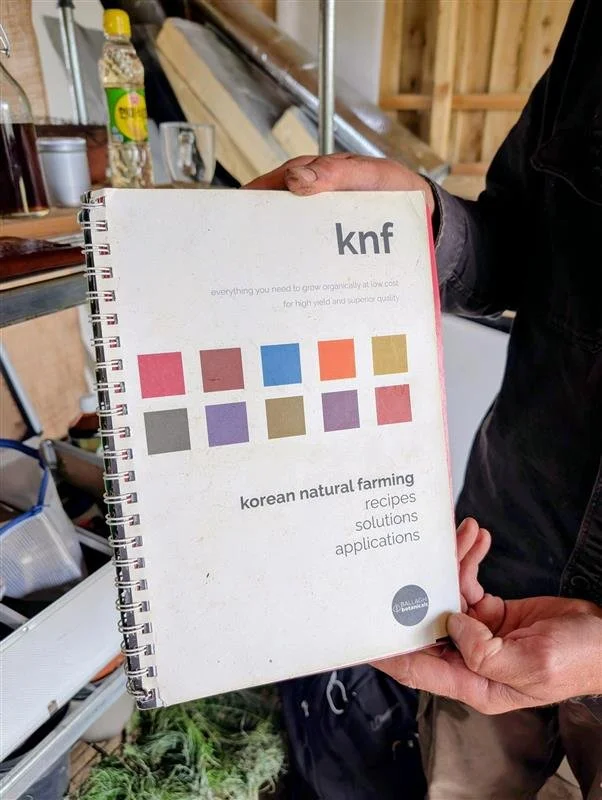Reclaiming Soil, Taste, and Education: How Love Farm Oxford is Leading a Microbial Farming Revolution
📍Wootton, Oxfordshire | 🌱 Regenerative Farming | 👩🏫 Community Education
At a time when food systems are industrialised, soils are depleted, and young people are increasingly disconnected from the land, Love Farm Oxford is pioneering a radically different path—one rooted in natural farming, community empowerment, and microbial intelligence.
Recently, I had the opportunity to explore the philosophy and practice behind this emerging "care farm" with Neville Porters, whose passion for soil health and community education is as infectious as the beneficial microbes he cultivates.
🌾 A Community Farm with a Purpose
Set on 3 acres of compacted pasture in Wootton, Love Farm Oxford is being transformed into a hub for community-centered natural farming. With a 5-year vision to create green education pathways for local schools and families, this isn’t just about growing food—it's about growing awareness, resilience, and agency.
“Kids need to be involved in this... It brings back the nobility in landwork.” — Neville Porters
🦠 The Microbial Mindset: Indigenous Microorganisms (IMOs)
A key pillar of the farm’s regenerative approach is the use of Indigenous Microorganisms—or IMOs. These native microbes are harvested from local woodlands, fermented, and reintroduced into the soil to mimic the resilience and fertility of natural ecosystems.
This DIY microbial strategy:
Replaces synthetic inputs
Restores soil biology
Enhances plant immunity
Improves nutrient uptake
It’s the kind of “appropriate technology” that marries tradition with biology—and it’s scalable, affordable, and deeply effective.
🍓 Rethinking Taste, Nutrition & What We Feed Our Kids
One of the most eye-opening parts of our conversation was around Brix testing—a simple tool that measures the sugar (and nutrient) content of fruits and vegetables.
“Most vegetables just taste like cardboard… no wonder kids won’t eat them.”
At Love Farm, Brix-tested carrots scored 12, compared to shop-bought ones at 3–4. The difference? Healthy soil, microbial diversity, and zero synthetic inputs.
Nev sees a future where consumers make choices based on nutrition density—not just marketing labels. Imagine:
“TikTok influencers promoting Brix 12 carrots over Brix 4… it’ll flip the food system on its head.”
🧪 DIY Biology Meets Community Science
In addition to IMOs, the farm uses:
Fermented Plant Juices (FPJs)
Water-Soluble Calcium (WCA)
Oriental Herbal Nutrients (OHN)
Revitalised compost using EM1 microbes & molasses
It’s a practical blend of Korean Natural Farming (KNF) and permaculture principles, tailored for the UK context.
And while deeply rooted in tradition, the farm is open to collaboration with scientists, schools, and researchers to validate outcomes and scale best practices.
🎓 Education is the Soil of the Future
Perhaps most powerfully, Love Farm is planting seeds in young minds. From hands-on soil tests to teaching about food seasonality and food justice, the farm is becoming an outdoor classroom that fills the gap left by a curriculum that rarely touches on food, land, or sustainability.
But as with all grassroots projects, access and funding remain challenges. Nev believes the future lies in building frameworks that help schools and local authorities access farms like this—easily, affordably, and with long-term impact in mind.
🌍 Final Thoughts: A Microbial Revolution with Human Roots
Love Farm Oxford is not just about farming. It’s about reclaiming flavour, dignity, education, and agency—through soil. By restoring the microbial life beneath our feet, we restore our own relationship to the land, to food, and to each other.
If we want a resilient food future, we may not need more tech—we may need more microbes.
Interested in supporting or visiting Love Farm Oxford?
Let’s connect. Message me or reach out to Neville Porters to get involved in this inspiring journey of regeneration and community care.

